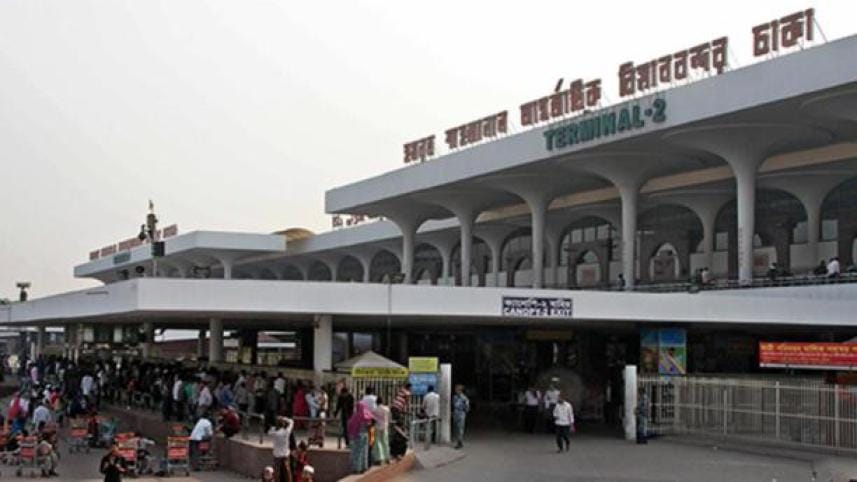Airport Security: All 3 int’l airports to get more scanners

To strengthen security further, the government is going to install two more explosive detection systems to screen export-oriented cargo at Hazrat Shahjalal International Airport (HSIA) in Dhaka.
With the technical and financial assistance from Japan, the government will also set up six body scanners -- four at HSIA, one each at Shah Amanat International Airport in Chattogram, and Osmani International Airport in Sylhet -- for the screening outbound passengers.
The Executive Committee of the National Economic Council (Ecnec) yesterday approved about Tk 60 crore for “The Project for Security Improvement of International Airport”. Prime Minister Sheikh Hasina presided over the meeting at the NEC conference room at Sher-e-Bangla Nagar in the capital.
Japan International Cooperation Agency (JICA) will bear 90 percent of the cost.
The project is scheduled for completion by June next year.
According to the planning ministry proposal, JICA has already surveyed the airports to identify necessary requirements.
The PM asked the authorities to keep dog squads at the airports to improve security, Planning Minister MA Mannan told journalists after the meeting.
On March 8, 2016, the UK government imposed a temporary ban on Dhaka-London direct air cargo after UK experts found serious security lapses and risks at the Dhaka airport during its inspections.
Following the ban, the government appointed an UK firm to ensure security and train staffers of the airport.
In 2016, the Ecnec had approved a Tk 89.55 crore project for purchasing security equipment for all the three international airports.
An official of the Civil Aviation Authority of Bangladesh yesterday said under that project, explosive detection systems, liquid explosive detection systems, dual view x-ray scanning machines, and under-vehicle scanning machines had been installed.
Following the steps, the UK government fully withdrew the ban in February 2018.
Mostly apparel items, vegetables, and agricultural products go to London.
Yesterday, the Ecnec approved 11 projects, including the improvement of airport security, involving around Tk 8,053 crore.
While okaying the projects, Hasina gave several directives to the ministries concerned. She asked for formulation of a master plan to set up service centres/restaurants along highways across the country for transport workers.
A planning ministry official said if the plan was implemented, passengers and transport workers could rest there. This would help reduce occurrence of accidents, he added.
Hasina also asked the Local Government Division to formulate a master plan so that waste management system was implemented even at union levels.
The Ecnec approved another project to move chemical warehouses of Old Dhaka to Kathaldia in Gazipur’s Tongi temporarily, as the long-time plan to set up a permanent hub would take time.
The project involves Tk 91.74 crore.
According to the ministry proposal, licensed chemical traders would be able to keep imported chemical products at the makeshift warehouses.
The project’s design has already been completed and it is scheduled to be finished by June next year.
The government, following a blaze in Old Dhaka’s Nimtoli in 2010, in which 124 died, decided to move chemical warehouses from residential areas to industrial zones in Keraniganj or Kamrangir Char. After this year’s Chawkbazar fire that claimed 70 lives, relocation of the chemical factories and warehouses became a hot topic again.
A Tk 201.80 crore project to be implemented on 50 acres of land in Keraniganj is scheduled to be completed in June 2021. The Ecnec approved the project last year.
Nearly six years -- from June 2011 to 2017 -- were spent on forming committees, holding meetings, selecting project site, deciding its size and reaching an agreement with industry owners, according to the project documents.
The Ecnec yesterday also approved a revised project on constructing a 330MW power plant in Khulna, increasing the cost by 20.45 percent to Tk 3,919 crore.
The deadline of the project was extended by three years. Earlier, the deadline was 2019.



 For all latest news, follow The Daily Star's Google News channel.
For all latest news, follow The Daily Star's Google News channel.
Comments